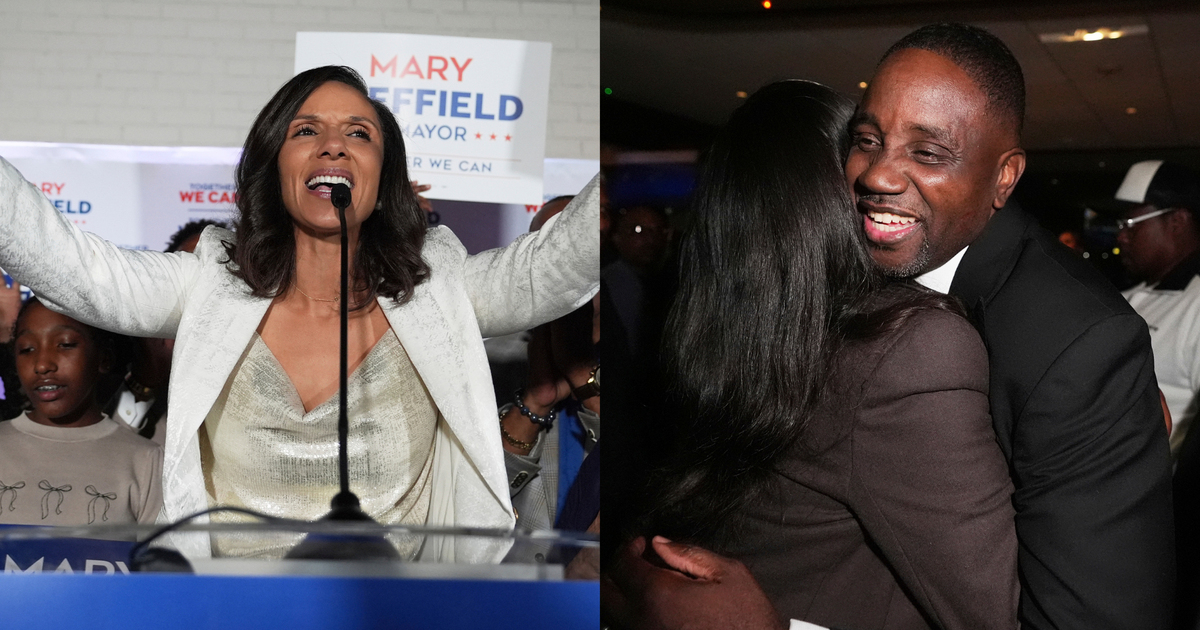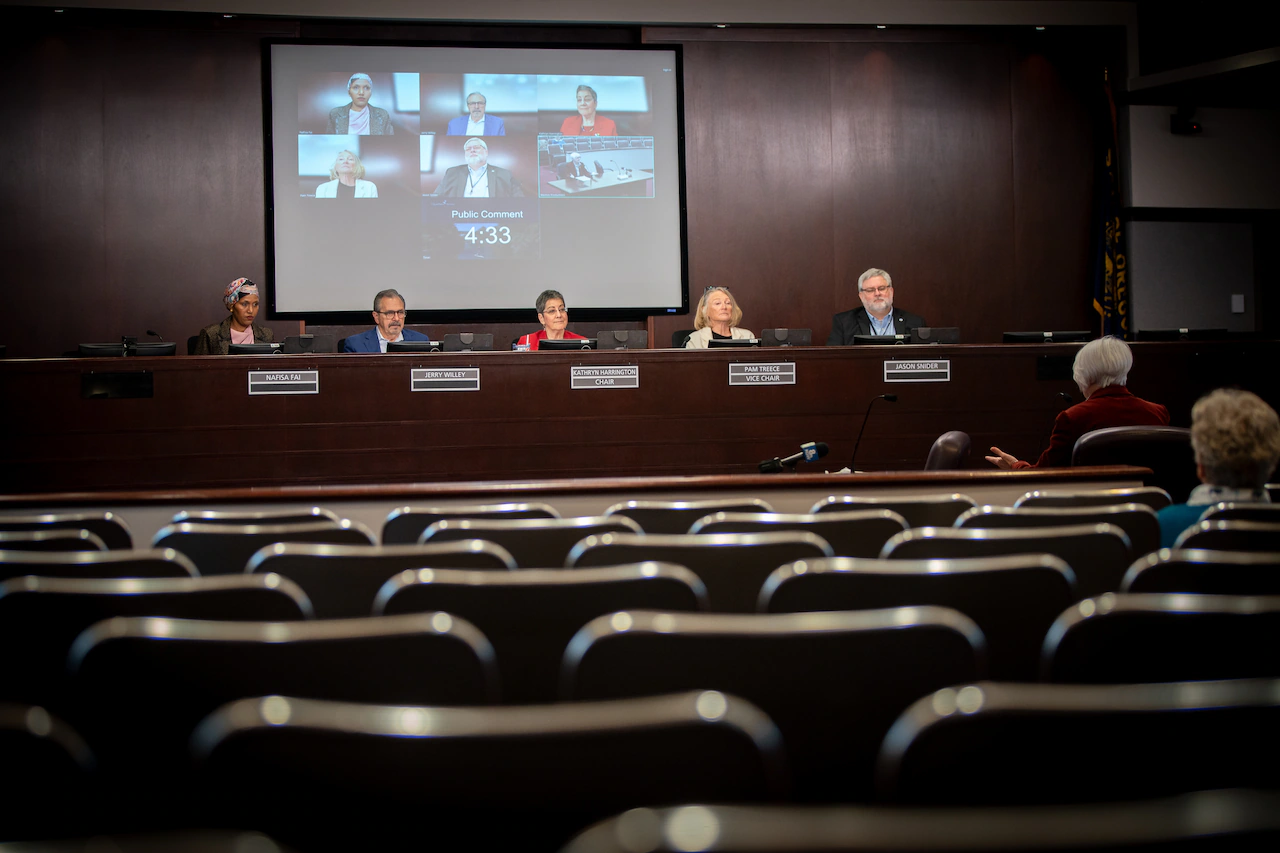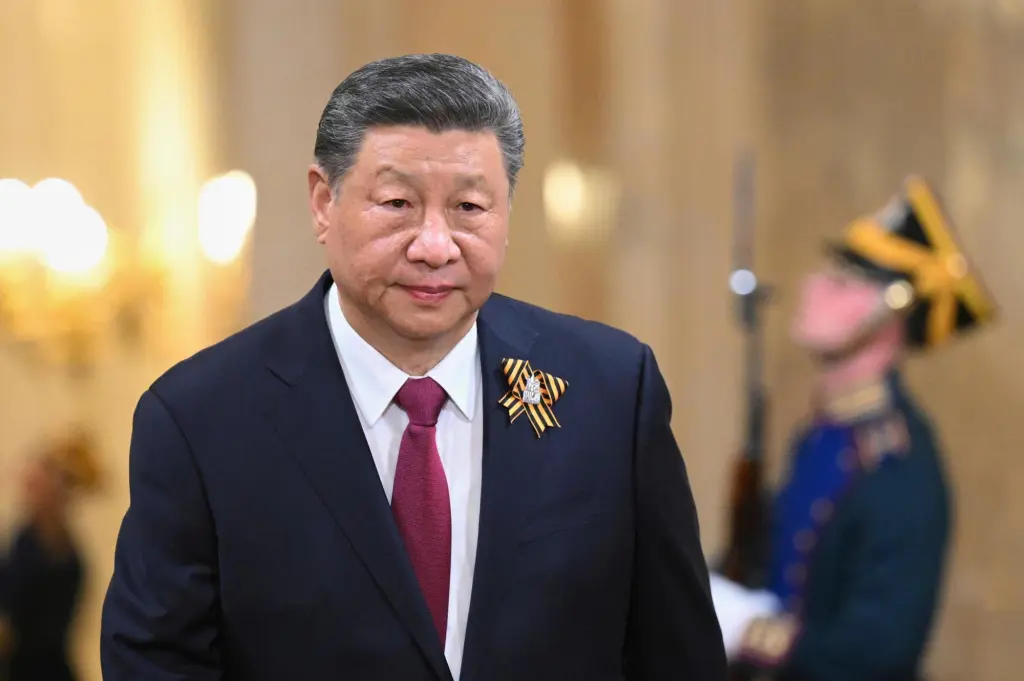Copyright CBS News

Detroit City Council President Mary Sheffield and the Rev. Solomon Kinloch will face off in the Nov. 4 election for the city of Detroit mayor. The two were the top candidates after the Aug. 5 primary, with Sheffield picking up an early lead as results came in. This will be the first new person in the mayor's office in 12 years. Democratic Mayor Mike Duggan announced in November 2024 that he would not seek a fourth term in office. Instead, he is running for Michigan's governor in the 2026 race as an Independent candidate. This left the Detroit mayoral race wide open, with nine candidates declaring. Soon after the primary election wrapped up, Duggan endorsed Sheffield. "Over the past decade, we have worked side by side to move our city forward, and I am grateful for his confidence in my leadership," Sheffield said about the endorsement. "Mayor Mike Duggan doesn't get the right to decide his successor. The voters in Detroit will determine the next Mayor in November," Kinloch said in response to the endorsement. Sheffield and Kinloch faced off during a televised debate on Oct. 15, and also made a joint appearance on Oct. 17. Both were invited for interviews with CBS News Detroit after they won the primary race. Both Sheffield and Kinloch sat down for interviews before the August primary election and again with "Michigan Matters" host Carol Cain in October. The candidates If elected, Sheffield would make history as the first woman mayor in Detroit's history. She has already made history as the youngest person to be elected to the city council in 2013 and then the youngest person to serve as council president in 2022. Sheffield announced her campaign for mayor in December 2024, saying she is focused on strengthening the city's economy and education, reducing crime, supporting small businesses and lowering property taxes for residents and businesses. Kinloch has served for 27 years as senior pastor at Triumph Church in Detroit. Under his leadership, Triumph has expanded to eight campuses and has been called one of the fastest-growing churches in the United States. Before becoming a pastor in 1998, Kinloch worked at the Chevrolet Gear and Axle Plant, where he was a member of UAW Local 235. He is a graduate of Northwestern High School. Key issues During the mayoral debate, both candidates spoke about public safety, growing the local business environment, good-paying jobs and infrastructure maintenance and updates for neighborhoods. Sheffield said earlier this year that she is focused on strengthening the city's economy and education, reducing crime, supporting small businesses and lowering property taxes for residents and businesses. She said she plans to partner with local libraries and schools to support local youth. "I'm excited to have a liaison with the mayor's office working with the school district on a daily basis," she said during an interview on "Michigan Matters." She says she is also focused on providing access to affordable housing. "Our young people are watching this moment," she said in an interview with CBS in September. Kinloch said his campaign goals include good jobs, strong schools, and thriving neighborhoods with affordable housing and safe streets. One of his platforms is addressing food insecurity through finding support for affordable grocery stores, investments in community gardens and meal deliveries. He also intends to work on building out reliable, high-speed internet service, claiming that 42% of homes in the city lack reliable connections. Under his campaign, he's focused on the Detroit Children's Trust Fund, which creates an investment from the city on behalf of each child who is born, raised and educated in Detroit. The money could then be used to buy a home, start a business or pursue further education. The accomplishments he cited in church leadership included organizing free grocery delivery for thousands of families in response to the COVID-19 pandemic and arranging for groceries distributed to autoworker families when Local 900 went on strike. He also helped distribute digital tablets to students so they could stay connected with classroom assignments when in-person teaching was not available.



